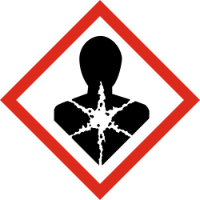Hazardous Waste
Disposal requirements:
Hazardous waste should be collected and disposed of by a registered contractor. It is worthwhile speaking to other Departments and Institutes in order to combine collections.
For more information about how to dispose of hazardous waste, please speak to Mr Alastair Johnstone (lvj@aber.ac.uk).
What is hazardous waste?
Waste is generally considered hazardous if it (or the material or substances it contains) are harmful to humans or the environment. This does not necessarily mean it is an immediate risk to human health, although some waste can be. Examples of hazardous waste include:
- chemicals, eg brake fluid or print toner
- batteries
- solvents
- pesticides
- oils (except edible ones), eg car oil
- equipment containing ozone depleting substances, eg fridges
- hazardous waste containers
- clinical and animal bi-products
- biological contaminants and pathogens
- sharps
If you are unsure if your waste is hazardous, you can classify it here.
Hazards associated with substances are highlighted by a set globally harmonised system (GHS) labels on the container and on a safety data sheet supplied by the manufacturer. Control of Substances Hazardous to Health COSHH assessments should be undertaken to ensure appropriate control measures are puy into place.
It would be worth considering the final disposal of materials at the purchasing stage; members of the University can make a positive contribution by reducing waste at source (such as specifying goods packaged in returnable containers) and by using reuse / recycle schemes where available.
Aberystwyth University Licenses and Registrations:
Aberystwyth University is a registered hazardous waste producer: AU Premises Registration Codes for Hazardous Waste Disposal 17 (.pdf) (staff only)
Aberystwyth University is a registered carrier of waste - licence number CBDU6128
Several exemptions have been granted for Aberystwyth University activities. The conditions of such exemptions must be upheld. Further information regarding the exemptions attributed to the Univertsity can be found below and exemption terms can be found here.
Aberystwyth University 2016 Waste Exemption Codes (.pdf)
Storage and Segregation:
Hazardous waste must be segregated and stored appropriately. For example, waste fuel oils must be stored in a bunded system with a capacity of at least 110 % of the capacity of the tank (as per the Water Resources (Control of Pollution) (Silage, Slurry and Agricultural Fuel Oil) (Wales) Regulations, 2010).
Hazardous waste stores should be sufficiently labelled and secured. An inventory should be kept securely.
Documentation:
You must keep your copies of:
- consignment notes - for more information and to download a form, click here
- consignee returns – you’ll get these from businesses that receive your waste (consignees)
- any related documents, eg ‘carrier schedules’ (list of carriers when there is more than one), records of rejected loads
You must ensure that any contractor is appropriately licenced and copies of site licences/permits and registration certificates are obtained.
Such information should be stored on the Waste pages of the Environmental Management System. For access to this information, please contact the Health, Safety and Environment Department.
Further information here.

